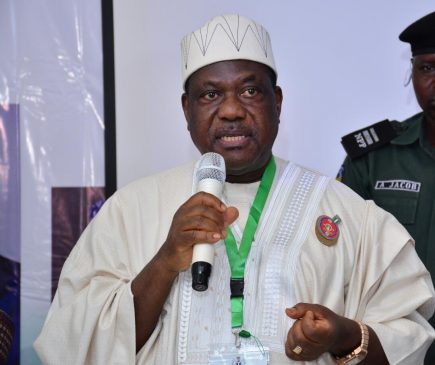Debo Adesina, has expressed fears about changes imposed by technology on journalism and its effect on good governance.
Adesina, however, advised the media to embrace new technology, master the skills of the profession and understand the audience.
He said this while delivering the keynote lecture at the second Distinguished Lecture Series of the University of Lagos (UNILAG) Mass Communication Alumni Association (UMCAA) at the university’s Main Auditorium yesterday.
The event was themed: ‘Building a new generation of media professionals in a changing world order’.
Adesina said digitisation has put the media in the position of jeopardy, with society’s easy access to information and ability to reach the nation’s leaders.
He noted that the journalist’s biggest challenge now is hinged on usefulness and relevance.
“Journalism and media practice have been identified as the worst profession in 2016, due to development in digital journalism, which has reduced opportunities for journalists.
“For the new professionals, there can hardly be a tougher time to join the profession than now. People don’t want to pay for information they can get for free. But it is not the end of the world.
“We only need to adapt to the change. It is those who do the extraordinary that will thrive. The fundamentals and quality of the profession will not change.
“As much as the media landscape may be changing, there will always be a need for good journalism. Democracy and good governance can only thrive where the leaders are held accountable by an independent and free press and where communication is not only open but vibrant. For as long as this is the case, people will pay for journalism but only the very good variety.”
Adesina encouraged media practitioners to maintain their relevance by engaging in journalism of special content and fortifying their knowledge with relevant skills.
He said: “We need to embrace technology, master our skills and understand the audience. There is already a shift in power from the media to the people. Wi-Fi rights are now human rights in some parts of the world…
“Journalism as a concept is founded on the idea that the affairs of a society belong to the people of that society and their right to know is not only inalienable, they naturally want to exercise it.
“The confidence of the people is boosted by transparency in the way their affairs are conducted and as many things that make them participate in matters concerning them would be welcome.”
Advising the mass communication undergraduates, Adesina said: “Content is king and it will be king for as long as it has integrity. Original thinking will always win. And that must begin with the platform too, whether print, broadcast or digital. A content that is authoritative. And to be authoritative is to have superior knowledge of a subject and possess the ability to narrate it in superior language…
“We must offer not just the story, but also the context and comprehensive analysis too. Depth, perspective and meaning will sell.”
A discussant, Prof. Lai Oso, added that the study of communication needs a broader curriculum that would enhance specialisation.
He said: “I think we need a new curriculum in our communication schools. Technology has destroyed the ‘mass’. So, we must expand the curriculum. We need to broaden our scope, specify more. We can’t continue to teach mass communication with a little knowledge of all aspects. We must be able to specify.
“Let us have a marriage between knowledge and skills. We need a core of elite media people, who can shape the practice. We also need to address the issue of ethics and integrity in our society.
“The professionals always complain that the students on industrial attachment don’t know anything. We sent them to you so that you can train them.”
The event was chaired by Chairman, Troyka Holdings Mr. Biodun Shobanjo.










